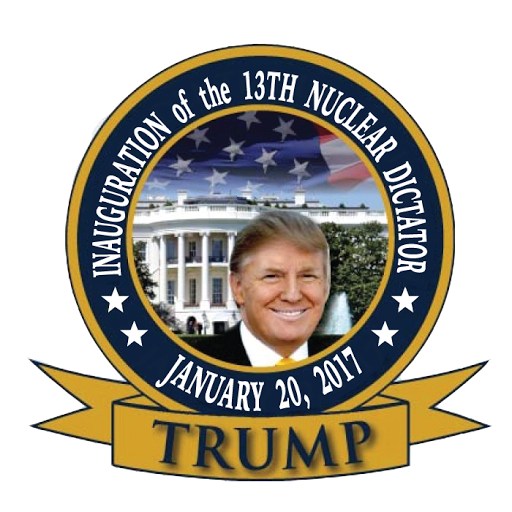January 20 marks a historic transition of power. Donald Trump will swear an oath to the American people. Crowds will shout praise and roar in bitter protest. Speeches, poetry, music. The inaugural parade will wind through Washington, DC, its long vine finally erupting into the bright blooms of celebratory balls. For Trump and his supporters, the night will end in dancing.
As the sun rises the next day, Donald Trump will be the 45th president of the United States. But he will also be something else.
During the Inauguration Day festivities, a military aide will quietly attach himself to Donald Trump's side. He carries a 45-pound briefcase; inside are the tools to end human civilization. This briefcase will be within Donald Trump's reach for every moment of every day during his presidency, as faithful a companion as his shadow.
There is no oath. It won't appear on commemorative mugs or plates. But in that moment, Donald Trump will also become the 13th nuclear dictator of the United States.
We often complain about how poorly and haltingly our government operates. In large part, that is by design. The founders feared the threat of corrupted or abused power far more than the risk of gridlock. Power is separated, contradictory, and limited, establishing checks and balances that shackle the Leviathan of the State. Inaction is far easier than action.
The power of the State to perform violence is no exception. Granted the role of Commander-in-chief by Article II of the U.S. Constitution, the president is the civilian head of the military. According to Article I, however, the power to declare war rests exclusively with Congress. The founders intended from the start for the executive branch to implement the wars authorized by the legislative branch (except in response to emergencies).
This careful separation of power has rarely worked out so neatly. The nature of war, and the tools required, have changed a lot since the first President of the United States was sworn into his office in 1789. The relative powers of the executive and legislative branches in administering conflict have shifted almost continuously over the last several centuries, often accompanied by rigorous debate and deliberation.
There is one major exception. The starkest transmutation of the executive branch's power was a largely silent revolution: the introduction of nuclear weapons. Tacitly or unintentionally, Congress allowed the president to assume absolute authority over the use of nuclear weapons, giving him the power to initiate a civilization-ending war at will.
There is only one check to the president's authority to launch nuclear weapons. It happened during the election on November 8. The nuclear dictator, once installed, will face no other challenge for the four years of his reign. As Dr. Bruce Blair explained, "with a single phone call, the commander in chief has virtually unlimited power to rain down nuclear weapons on any adversarial regime and country at any time. You might imagine this awesome executive power would be hamstrung with checks and balances, but by law, custom and congressional deference there may be no responsibility where the president has more absolute control."
The designers of the Constitution could never have anticipated the development of a power so unrestrained and inhuman. That such a power rests in the hands of a single person is a vile repudiation of the system by which they sought just and limited governance. It makes the scope of the presidency as we know it today completely unrecognizable from the offices held by men like Washington, Lincoln, and Roosevelt.
Donald Trump is only the 13th inheritor of the new office that began with Truman: the nuclear dictator.
If it scares you that Donald Trump will command the capacity to wipe entire cities off the map in a matter of minutes, you aren't alone. But the root of that terrifying reality isn't Donald Trump. In four years, the 13th nuclear dictator will only be replaced by the 14th.
Unless we dismantle the system that allows one person to hold such absolute power, our democracy and every value central to its design are hostages of the nuclear dictatorship.
It's up to us to rescue our democracy from tyranny. Time to get to work.
